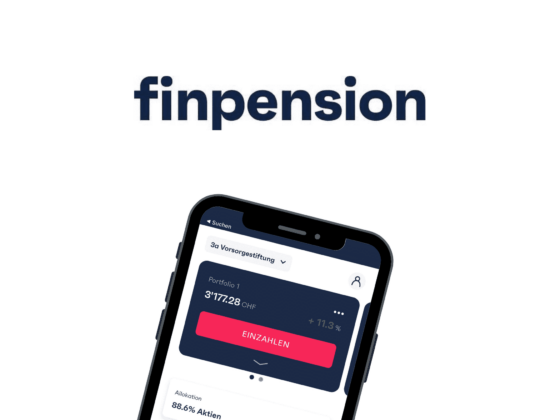Futures and options are financial instruments that allow investors to speculate on the future value of an asset. They can be used in a variety of ways, including hedging against price volatility or speculating on the direction of an asset’s price.
Stock Market Futures and Options are financial derivatives that allow traders to speculate on the future value of a company’s stock.
What are Option Contracts and How Do They Work?

Over the past decade, I’ve worked at a number of start-up software businesses. I was also offered stock options as part of the perks package. Options are much more attractive to small businesses than real stock gifts.
That’s because a choice is, well, a choice. You are not obligated to purchase choices. However, you have the option to do so.
My company offered me a fixed price, known as the strike price, and a certain number of shares when I got my stock options.
And all that meant was that I had the option to acquire those shares at that specified price at some point in the future (before the contract’s expiry date), regardless of what the stock was really worth by the time I got around to purchasing it.
While I had an employer-sponsored options contract, you may buy options just as you would stock via a brokerage account. However, you’ll have to pay a premium to have the opportunity to buy the shares.
The premium is basically a nonrefundable deposit that you provide in exchange for the right to purchase the option. There are two types of options: calls and puts.
Your Complimentary Stock Market Guide
Get access to our daily email as well.

Thank you for registering to receive our financial education newsletters. Confirm your subscription by checking your email. Check your spam and promotional folders if you haven’t received the email within an hour.
Please read our Privacy Statement and Terms of Service.
Puts vs. Calls
A call option is the opportunity to purchase a particular number of shares at a specific strike price by a specific date, which I got at my previous employment. However, calling options only makes financial sense if the stock price rises over the strike price.
As an example, suppose you had a 10,000-share options contract with a $1 strike price. You’d undoubtedly want to exercise those options if the stock rose to $5 before your contract ends.
You might make a fast $4 profit per share by turning around and selling those shares right now. And if you had access to 10,000 shares of options, you could easily make $40,000 in a matter of minutes.
However, if your call option’s strike price is $1 and the stock drops below that to only trade at $.75, a call option may bite you. In such scenario, the choice is meaningless. As a result, you’d be better off just letting the call option expire worthless and taking the loss on the premium you paid for it.
A put option is utilized by someone who already owns an asset and wishes to sell a specified number of shares at a specific price at a future date. When investors believe an asset is about to decrease in value, put options are a popular investment.
Let’s suppose you own 100 shares of Company A stock and are concerned that the company is going to go bankrupt. You’d sell one put option for Company A, say for $20, since each options contract represents 100 shares. That implies you may sell those 100 shares for $20 apiece until the options contract expires.
However, keep in mind that you will have to pay a premium for such contract. Assume the price is $1 per share. In this instance, you’ll “win” if Company A’s stock goes below $19. (your put option minus the premium).
You would earn $4 per share, or $400, if the price dropped below $15 before the expiry date. If you were compelled to sell those shares on the open market, you would lose $500. Because you paid $20 toward the contract, you saved $80 by purchasing the put option. Does it make sense?
Options provide many advantages, including:
- Flexibility in execution: You have the ability to exercise your options at any time before they expire. You may even opt not to use them at all! When contrasted to futures, that is the benefit of purchasing options. You are not obligated to do anything; if you do not, you will forfeit your subscription money.
- Limited liability: When you purchase options, you’ll only ever have to pay the premium for the option you’ve chosen. You put up the margin with futures and may need to add more to cover a price drop. As a result, options are much less risky than futures.
Options, like futures, have certain inherent disadvantages:
- Sellers face many dangers: When you’re the buyer, your risk is better controlled. You pay your premium up advance, and you’re not out anything if you decide not to purchase. Selling options, on the other hand, puts you in a position of responsibility. When you sell an option, you’re committing to sell it for a certain price on a specific date. The buyer has the option of executing or not. However, even if you lose a large amount of money (or a perceived loss if a stock dramatically rises or drops), you must sell.
Futures and Options: What’s the Difference?

While futures and options are extremely similar, there are several significant distinctions to be aware of before making a buy or sell.
- Futures and options both require you to make a purchase, while futures are optional. Not to beat a dead horse, but when you purchase an option, you have the choice to exercise it or let it expire worthless. The only way to get out of a futures contract is to go through it.
- Futures and options may both be purchased with leverage, but not options. This implies that the greatest loss you may take on an option purchase is the premium. However, because of the leverage required to purchase futures, you may need to increase your margin account over time.
- Futures are mostly employed by companies to lock in market pricing, while options assist investors hedge against uncertainty. Buying and selling options may help you manage stock market risk, particularly if the market takes a turn for the worst. However, the main aim of futures is to ensure that companies will be successful by locking in a future market price.
Every investment is fundamentally risky. And, just as there’s no assurance you’ll profit from futures and options contracts, there’s no guarantee you’ll profit from stocks and bonds. However, if you’ve done your homework, it’s a good idea to dabble in futures and options.
If you’re new to the stock market, like me, and you’re more risk-averse, options and futures may be worth learning about, but not necessarily investing in right now.
However, if you have the time and energy to learn all there is to know about options and futures, as well as the industry expertise required to trade them well, they are available for trading.

Your Complimentary Stock Market Guide
Get access to our daily email as well.
Thank you for registering to receive our financial education newsletters. Confirm your subscription by checking your email. Check your spam and promotional folders if you haven’t received the email within an hour.
Please read our Privacy Statement and Terms of Service.
Final Thoughts
Futures and options trading, like any other stock market investment, is a high-risk activity. That means you’ll need to do a lot of study and make sure you completely understand and are ready to accept the dangers before putting any money down. As you evaluate whether or not to invest in futures and options, keep the following in mind:
- Many traders consider futures and options to be “insurance” against the risks of other assets.
- You must thoroughly comprehend the business, commodity, or asset class in which you want to invest. That implies you’ll need to understand how the economy will influence the future of company and competition in the industry.
- You’ll need sufficient funds to offset any possible losses. While futures and options may help you minimize your losses, you should maintain a few thousand dollars in the bank to cover any possible losses.
This essay just scratches the surface of futures and options, and believe me when I say that simply thinking about them makes my head spin.
If you want to trade futures and options, you’ll need to find a broker who can evaluate your financial position and, if you’re qualified, authorize you to trade. As with any investment, just put in what you’re prepared to lose, and get out of the stock market kitchen if you can’t handle the heat.
A futures contract example is a type of derivative contract that is based on the price of an asset, such as gold or oil. It is an agreement between two parties to buy and sell an asset at a specified time in the future.
Frequently Asked Questions

What is futures and options in stock market with examples?
Futures are products traded on a futures exchange. They are contracts to buy or sell an asset at a specified price on a specific date in the future. The buyer of the contract pays for it today and agrees to buy or sell the underlying asset at that price, even if the market moves against them.
What is the difference between stock futures and options?
Options are a type of derivative contract that allows the buyer to purchase or sell an asset at a specific price by agreeing to buy or sell it on a particular date. This is different from stocks, which represent shares in a company and trade on public markets.
What is futures and options with examples?
A futures contract is a standardized, tradable financial instrument that allows two parties to exchange an asset at a predetermined price on a specified date in the future. An option is a derivative security with a predetermined amount of time until expiration and various other features that allow for speculation or hedging.



